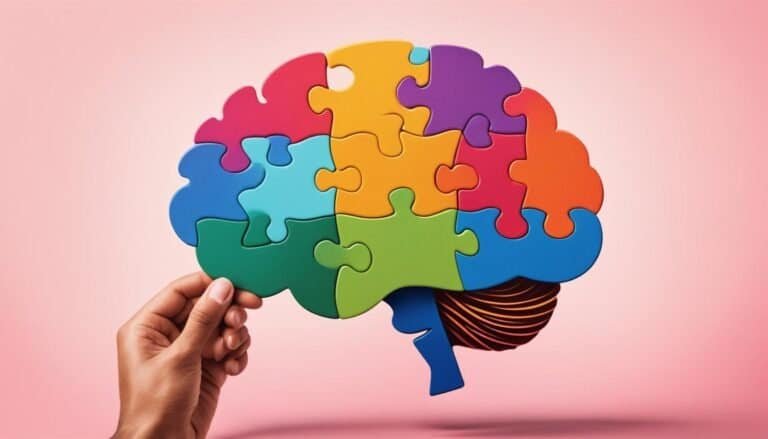Youth Sports
Hey there!
Youth sports are like a rite of passage, a stepping stone for young athletes.
Engaging in sports at a young age can shape your character, build resilience, and foster teamwork.
It’s a platform for you to develop skills that go beyond the playing field, preparing you for life’s challenges.
From soccer to basketball, these activities offer a chance to have fun, stay active, and make lifelong friendships.
So, lace up those sneakers and get ready to hit the field!
Key Takeaways
- Increased parental involvement
- Growing emphasis on early specialization
- Development of crucial interpersonal skills
- Improved fitness levels
The Evolution of Youth Sports
Take a look at the rapid evolution of youth sports over the past decade, from increased specialization to heightened focus on safety and well-being.
Parental involvement has significantly increased, with parents taking on more active roles as coaches, managers, and organizers. This increased involvement has both positive and negative effects on youth sports, as it can enhance the support system for young athletes but also lead to added pressure and expectations.
Professionalization pressure has also played a significant role in shaping the evolution of youth sports. There’s a growing emphasis on early specialization and intense training regimens, driven by the desire to groom young athletes for potential professional careers. This has led to a shift in the way youth sports are approached, with a greater focus on advanced techniques and tactics from an early age.
Benefits of Youth Sports
Engaging in youth sports offers a multitude of physical, mental, and social benefits for participants. The teamwork dynamics cultivated through sports help young athletes develop crucial interpersonal skills, such as communication, cooperation, and leadership. This fosters a sense of camaraderie and teaches individuals the importance of working together towards a common goal.
Moreover, participating in sports can contribute to injury prevention by promoting strength, flexibility, and overall physical fitness, reducing the risk of certain injuries.
Character development is another significant benefit of youth sports. The challenges and victories experienced in sports can instill qualities like resilience, determination, and discipline in young athletes. These character traits are invaluable for their personal growth and can positively influence other areas of their lives, including academic performance. Studies have shown that students who engage in regular physical activity through sports often exhibit improved concentration, higher self-esteem, and better academic performance.
Challenges in Youth Sports
Participating in youth sports can come with various challenges that young athletes and their families may encounter throughout their sporting journey. These challenges encompass a range of issues, including parental involvement, coaching dynamics, injury prevention, and burnout prevention. Navigating these challenges is essential for creating a positive and fulfilling experience for young athletes.
| Challenges | Solutions |
|---|---|
| Parental involvement | Encourage positive support and open communication |
| Coaching dynamics | Foster mutual respect and alignment on player development |
| Injury prevention | Emphasize proper warm-ups, cooldowns, and equipment usage |
| Burnout prevention | Promote balanced schedules and prioritize mental well-being |
One common challenge in youth sports is parental involvement. While support is crucial, excessive involvement can lead to added pressure and stress for young athletes. Encouraging positive support and open communication between parents, coaches, and athletes can help mitigate this challenge. Another significant challenge is coaching dynamics, where differing coaching styles and philosophies can sometimes create confusion for young athletes. Foster mutual respect and alignment on player development strategies between coaches, parents, and athletes to address this issue. Additionally, prioritizing injury prevention through proper warm-ups, cooldowns, and equipment usage, as well as promoting balanced schedules and mental well-being, can help prevent burnout among young athletes.
Impact on Physical Health
Youth sports can have a significant impact on your physical health. Engaging in sports activities can improve your fitness levels and overall well-being.
The physical benefits of sports can range from increased cardiovascular endurance to improved muscle strength.
Youth Sports and Fitness
Improving physical health through regular sports participation can lead to long-term fitness benefits for young athletes. Engaging in youth sports not only promotes physical activity but also contributes to overall fitness.
To maximize the impact on physical health, consider the following:
-
Injury prevention: Incorporating proper warm-up routines and conditioning programs can help reduce the risk of injuries during sports activities.
-
Nutrition: Maintaining a balanced diet tailored to the specific needs of young athletes can support their physical health and enhance performance.
-
Hydration strategies: Educating young athletes about the importance of staying hydrated before, during, and after sports activities is crucial for their physical well-being.
Physical Benefits of Sports
To maximize your physical health benefits from sports, focus on implementing injury prevention, maintaining proper nutrition, and employing effective hydration strategies.
Injury prevention and sports safety should be a top priority. Wearing appropriate protective gear, warming up before activities, and following proper technique can significantly reduce the risk of injuries.
Additionally, long-term health and fitness goals can be achieved through regular participation in sports. Engaging in physical activities helps in maintaining a healthy weight, strengthening muscles and bones, and improving cardiovascular health. Sports also contribute to better coordination, flexibility, and overall physical endurance.
When combined with a balanced diet and proper hydration, the physical benefits of sports can have a profound impact on your well-being, both in the present and for years to come.
Psychological Effects of Youth Sports
Participating in youth sports can have a significant impact on your mental resilience. It’s an opportunity to develop skills that can help you navigate challenges both on and off the field.
You’ll also have the chance to enhance your social skills and learn valuable stress management techniques.
Mental Resilience Development
Through your involvement in youth sports, you’ll develop mental resilience that can positively impact your psychological well-being. The challenges you face while participating in sports act as resilience training, helping you develop mental toughness and the ability to bounce back from setbacks. This mental resilience can extend beyond sports and into other areas of your life, helping you navigate and overcome obstacles with a positive mindset.
Additionally, the camaraderie and support from teammates and coaches can contribute to your mental well-being, providing a sense of belonging and a support system during difficult times.
- Challenges in sports act as resilience training
- Development of mental toughness
- Support from teammates and coaches
Social Skill Enhancement
In youth sports, camaraderie and teamwork foster social skill enhancement, promoting positive psychological effects for young athletes. Through teamwork development, young athletes learn to collaborate, communicate, and support each other both on and off the field.
Engaging in team sports provides opportunities for children to understand the importance of effective communication, problem-solving, and conflict resolution. As they work together towards common goals, they develop valuable communication skills that are essential for building strong relationships and navigating social situations in the future.
These experiences help young athletes to become more empathetic and understanding of others’ perspectives, ultimately contributing to their overall social development. The bonds formed through teamwork in youth sports can have a lasting impact on the social skills and psychological well-being of young athletes.
Stress Management Techniques
To cope with the pressures of youth sports, you need to learn effective stress management techniques that can positively impact your psychological well-being. Managing stress is crucial for maintaining a healthy balance in your life.
Here are some techniques to help you better manage stress:
-
Deep Breathing: Practice deep breathing exercises to calm your mind and reduce stress. Take slow, deep breaths in and out, focusing on the sensation of your breath entering and leaving your body.
-
Visualization Techniques: Use visualization to imagine yourself succeeding and overcoming challenges in your sport. Visualizing positive outcomes can help reduce anxiety and build confidence.
-
Mindfulness Meditation: Engage in mindfulness meditation to stay present and focused, reducing the impact of stress on your mind and body.
Implementing these techniques can help you navigate the demands of youth sports while maintaining your mental well-being.
Balancing Academics and Athletics
As a student athlete, you must prioritize balancing your academics and athletics to achieve success both on and off the field. The academic pressure of maintaining good grades while excelling in your sport can be overwhelming, but with effective time management, you can find the right balance.
One key to managing academic pressure is to stay organized and plan your time wisely. Set specific times for studying, attending classes, and participating in athletic activities. Use tools like planners or digital calendars to stay on top of assignments, practices, and games. Additionally, communicate with your teachers and coaches about your schedule to ensure everyone is aware of your commitments.
Time management is crucial for student athletes as it allows you to allocate enough time for both academics and athletics without feeling overly stressed. Prioritize your tasks based on deadlines and importance, and don’t be afraid to ask for help when needed.
Conclusion
So, now you know the ins and outs of youth sports.
It’s like a colorful mosaic, with each piece representing the benefits, challenges, and impact of sports on young athletes.
Keep encouraging and supporting the youth in your life to participate in sports, because it’s like a garden that needs nurturing to bloom into something beautiful.








